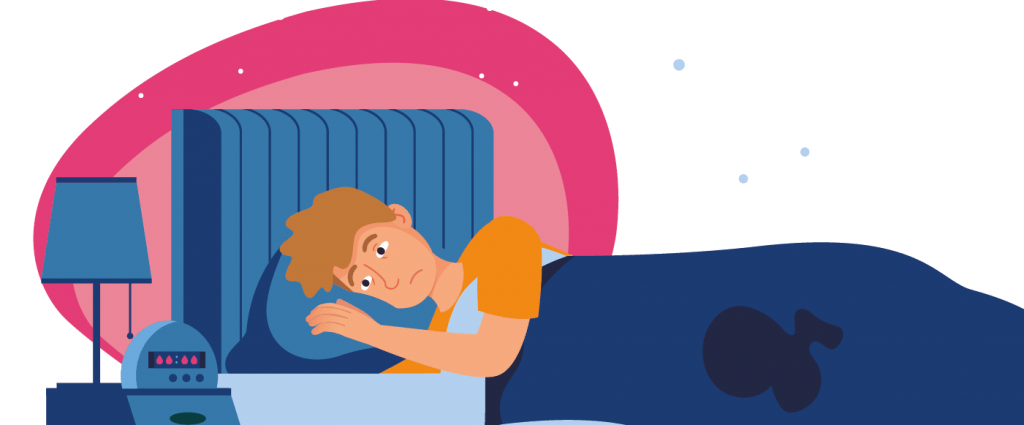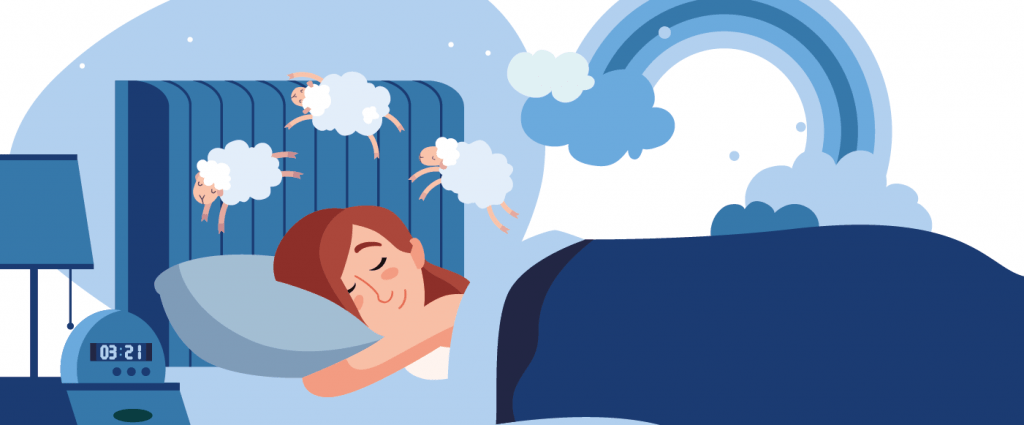Urinating frequently at night is fairly common, with 1 in 3 adults over 30 making at least two trips to the loo each night1. Nonetheless, an overactive bladder at night, known in medical circles as nocturia, can be bothersome, particularly if it’s preventing you from getting sleep. So, we’ve gathered all the facts and our top tips for managing this issue.

What constitutes an overactive bladder at night?
Technically speaking, an overactive bladder at night means getting up at least once a night to urinate2. However, by this definition, most people experience this condition to some extent. Therefore, it’s generally considered a “problem” when you’re getting up two times a night or more to go to the toilet and/or have difficulty getting back to sleep.3
Nocturia differs from bedwetting (also known as nocturnal enuresis), which typically involves the involuntary passing of urine4 and is more common in children5.

What can cause nocturia?
While an overactive bladder at night is most common in adults aged 60 years and older, it can occur at any age. It can be caused by a variety of things from lifestyle factors to more serious medical conditions, 6 including:
- drinking a lot of fluids, particularly drinks with caffeine in them or alcohol
- eating a lot of salt
- certain medications and supplements7
- behavioural patterns (i.e. you’ve trained yourself to need to pee at night)8
- untreated diabetes
- swelling in your legs (also known as oedema)9, as the fluid retained in the lower body needs to go somewhere10
- sleeping disorders, such as sleep apnoea (where breathing is interrupted while you sleep)
- bladder obstruction
- urinary tract infections (or UTIs)11
- pregnancy
- obesity
- bladder infections
- menopause
- kidneys problems, such as stones12
- restless leg syndrome
- decreased bladder capacity
- vaginal or pelvic floor issues
- nocturnal polyuria (where your bladder produces too much wee at night).13

How can you manage an overactive bladder at night?
While unpleasant, an overactive bladder at night is controllable. Tips for managing the symptoms of nocturia vary from home remedies and lifestyle changes to medical interventions (which should be guided by a doctor). When initially seeking advice from a medical professional, it can be useful to keep a voiding diary beforehand. This is a record of how much liquid you drink and how often you go to the toilet, which can help a doctor diagnose your issue. It may also include:
- how much wee comes out when you go to the loo
- which medications you take
- UTI symptoms
- other symptoms, such as fatigue.14
Medical interventions
Should your doctor recommend it, there are various medical treatments for an overactive bladder at night, including:
- removing or reducing any regular medications that can worsen symptoms of an overactive bladder (under the direction of your healthcare provider)
- treatments for prostate problems, such as surgery
- medications to relax your bladder, if you experience urge incontinence
- anti-diuretic hormone (ADH), which helps to regulate water balance in the body15
- medicines to block particular nerve impulses to the bladder that tell it to contract when it shouldn’t16.
However, it’s unlikely that medication alone will completely remove all symptoms, so you might wish to try changing some lifestyle factors17.
Home remedies and lifestyle changes
In addition to medical options, you could consider changes to your day-to-day life to improve your nightly urges to go to the loo. These include:
- limiting how much your drink right before bed
- avoid certain foods and drinks that can irritate your bladder, including:
- citrus juices and cranberry juice (though this can be useful for other bladder issues)
- spicy foods
- acidic foods, such as tomatoes
- chocolate
- artificial sweeteners
- double-void before sleep; this means going for a second wee before you get into bed, even if you don’t need to
- pelvic floor exercises18
- if you experience swelling in your legs, make sure to elevate them during the day or wear support stockings
- improve sleep hygiene by making your bedroom the right temperature and dark enough19
- quit smoking, as this can cause frequent urination20.
In addition, appropriate continence products, such as iD Pants Maxi, can help capture any leaks. These unisex comfortable and discreet incontinence pants have odour control and are super absorbent, meaning you can put concerns of overnight leaks to bed.

Sources
1 “How to Treat an Overactive Bladder at Night”, Mary Ellen Ellis, 17 September 2018, Source: https://www.healthline.com/health/overactive-bladder/overactive-bladder-night
2 “Nocturia or Frequent Urination at Night”, Eric Suni, 11 March 2022, Source: https://www.sleepfoundation.org/physical-health/nocturia-or-frequent-unrination-night
3 Ibid.
4 Ibid.
5 “Bedwetting in children”, NHS, 27 April 2020, Source: https://www.nhs.uk/conditions/bedwetting/
6 “How to treat an overactive bladder at night”, Jon Johnson, 22 December 2020, Source: https://www.medicalnewstoday.com/articles/316869
7 “Nocturia”, Cleveland Clinic medical professional, 1 June 2020, Source: https://my.clevelandclinic.org/health/diseases/14510-nocturia
8 “What is Nocturia?”, Urology Care Foundation, n.d., Source: https://www.urologyhealth.org/urology-a-z/n/nocturia
9 “Nocturia”, Cleveland Clinic medical professional, 1 June 2020, Source: https://my.clevelandclinic.org/health/diseases/14510-nocturia
10 “Warning: Here’s Why Waking Up To Urinate At Night Is NOT Always Normal!”, Times of India, 7 December 2017, Source: https://timesofindia.indiatimes.com/life-style/health-fitness/photo-stories/warning-waking-up-to-pee-at-night-is-not-always-normal/photostory/61942025.cms
11 “Nocturia”, Cleveland Clinic medical professional, 1 June 2020, Source: https://my.clevelandclinic.org/health/diseases/14510-nocturia
12 “How to treat an overactive bladder at night”, Jon Johnson, 22 December 2020, Source: https://www.medicalnewstoday.com/articles/316869
13 “What is Nocturia?”, Urology Care Foundation, n.d., Source: https://www.urologyhealth.org/urology-a-z/n/nocturia
14 “How to Treat an Overactive Bladder at Night”, Mary Ellen Ellis, 17 September 2018, Source: https://www.healthline.com/health/overactive-bladder/overactive-bladder-night
15 “Nocturia”, West Suffolk NHS Foundation Trust, n.d., Source: https://www.wsh.nhs.uk/CMS-Documents/Patient-leaflets/Gynaecology/6497-1-Nocturia-getting-up-at-night-to-pass-urine.pdf
16 “Overactive bladder syndrome (OAB)”, North Bristol NHS Trust, March 2018, Source: https://www.nbt.nhs.uk/sites/default/files/attachments/Overactive%20bladder%20syndrome_NBT002734.pdf
17 Ibid.
18 “Putting an Overactive Bladder to Bed”, Gina Shaw, 11 July 2013, Source: https://www.webmd.com/urinary-incontinence-oab/features/putting-an-overactive-bladder-to-bed
19 “Nocturia”, West Suffolk NHS Foundation Trust, n.d., Source: https://www.wsh.nhs.uk/CMS-Documents/Patient-leaflets/Gynaecology/6497-1-Nocturia-getting-up-at-night-to-pass-urine.pdf
20 “7 Urologic Conditions Impacted by Smoking”, Urology Care Foundation, 17 March 2018, Source: https://www.urologyhealth.org/healthy-living/care-blog/2018/7-urologic-conditions-impacted-by-smoking
